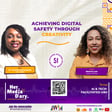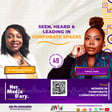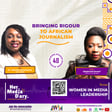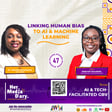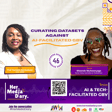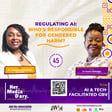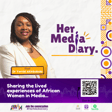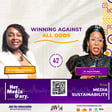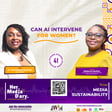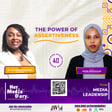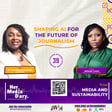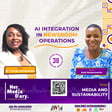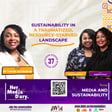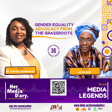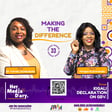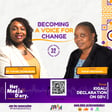
Her Media Diary Episode 44: “Open, Free & Secure Internet for Women” with Sandra Aceng
Sandra Aceng is a human rights defender and digital rights advocate from Uganda. She is also the Executive Director of Women of Ugandan Network (WOUGNET), an organization that engages in research, policy advocacy, and capacity-building programs to ensure gender inclusivity in Uganda’s digital landscape.
In this episode, Sandra discusses her personal journey into activism, the digital realities faced by women in Uganda, how AI may be perpetuating gendered harm, and what the path forward looks like for creating safer digital spaces.
As AI advances and our lives become increasingly digitised, we cannot afford to overlook gender in tech conversations. Sandra’s work is a powerful call to action for governments, developers, media platforms, and all of us to centre women’s experiences and safety in every aspect of the digital world.
Subscribe, leave a review and share this episode with someone who needs to hear it.
If you’d like to join an episode of this podcast, send an email to yemisi@africanwomeninmedia.com. Or visit our website at www.hermediadiary.com
Subscribe and follow Her Media Diary on all your favourite podcast platforms. Also, tune in to our partner radio stations from anywhere across Africa. And don’t forget to join the conversation using the hashtag #hermediadiary.
